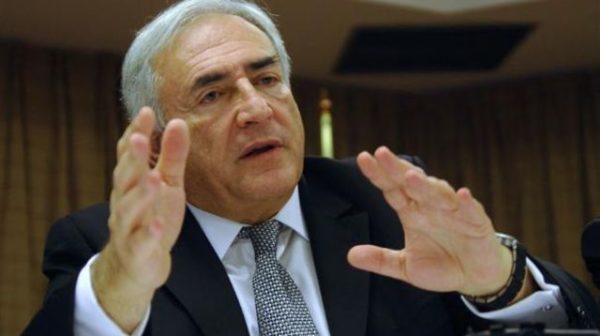The former director of the International Monetary Fund (IMF), Dominique Strauss-Kahn, delivered his analysis on the CFA franc, the former Franc of French colonies in Africa still in force in 14 African countries, and formulated proposals reforms through three main conditions.
Indeed, in a 29-page document published on April 13, 2018, the French known as DSK drew not only an almost glowing picture of the currency (notably the good performance of the Franc Zone at the macroeconomic level thanks to the guarantee it enjoys), but noted the disadvantages which, in his opinion, weaken the economies of the region. “The political problem is becoming more and more sensitive, as the protests of the summer of 2017 have shown,” he writes.
“Monetary choices have an essential technical dimension. But they still proceed, moreover, a political choice, “says the former director of the IMF. “The inexpressed nature of the political bond can only foster an identity doubt within an Africa whose relationship to the colonial past is particularly complex and difficult to explain,” he adds.
In addition, DSK indicates that “certain practical aspects feed in Africa, the suspicion of neo-colonialism”, making, inter alia, allusion to denomination “franc”, and the deposit of the reserves with the French Treasury.
On this point, the former French Minister of Economy says that “the holding of African reserves” by his country “does not represent the advantage that some imagine”. Paris, in fact, “assumes, alone, an unpaid financial risk, for which the African public does not give it credit and whose commercial profit is shared with the whole euro zone”. He added that “the advantage derived from the CFA-euro fixed parity extends to the other countries of the euro zone”.
In his paper, Dominique Strauss-Kahn did not fail to point out the impossibility of modifying the parity and the lack of dissociation between the regions of West and Central Africa, as well as the weakness of regional integration: “the common market is still unfinished in West Africa (region with trade traditions) and it has remained largely nominal in Central Africa (forest regions with traditionally limited trade and today today, under the influence of the oil return) “.
As much of a default that, concluded the former director general of the IMF, “limit the potential benefits” of the currency.
“Strengthening the currency”
In the document, DSK Kahn recommends a more in-depth reform of the Franc Zone, before proposing the reallocation of France’s seats in African central banks to independent international administrators, anchoring to a basket of currency rather only the euro, a better economic coordination of the economies of the region and a process of enlargement of UEMOA, especially in Ghana, a country exclusively surrounded by member countries of the Franc zone.
“The symbols of the link with France are all subjects allowing to change cheaply the image of the CFA franc”, advance DSK which judges that these modifications would leave the weaknesses of the Zone, and make the modifications of the parity even more problematic, weakening small countries.
And to propose a series of 3 conditions to carry out the reforms: it is about an improvement of the dialogue with the African authorities, of a communication emphasizing the reinforcement of the currency and a better association of the European partners as well promoting cooperation between the ECB (European Central Bank) and African central banks.



